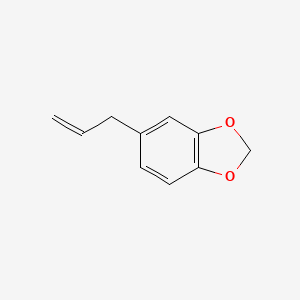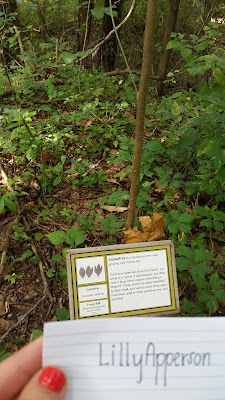To reduce pain, swelling and infection use:
Eastern Deciduous Forest and Tall Grass Prairie
Common Name: Sassafras
Genus and Species Name: Sassafras albidum
Habitat: Pastures, roadsides, thickets, and on the border of dry woods
Seasons: Sassafras root is available year round.
Medicinal uses: The sassafras oil is an antiseptic (kills germs) and analgesic (pain killer). It also reduces swelling (anti- inflammatory).
Preparation: The sassafras root is boiled in order to extract its oil. Oil is lighter than water, so it will separate. Then one can remove the oil from the water and apply it to the skin in order to relieve pain, reduce swelling, and kill germs.
Active Chemical Ingredient: Safrole
Chemical Formula: C10H10O2
Habitat: Pastures, roadsides, thickets, and on the border of dry woods
Seasons: Sassafras root is available year round.
Medicinal uses: The sassafras oil is an antiseptic (kills germs) and analgesic (pain killer). It also reduces swelling (anti- inflammatory).
Preparation: The sassafras root is boiled in order to extract its oil. Oil is lighter than water, so it will separate. Then one can remove the oil from the water and apply it to the skin in order to relieve pain, reduce swelling, and kill germs.
Active Chemical Ingredient: Safrole
Chemical Structure:

Chemical Structure:

Resources:
Safrole. (n.d.). Retrieved September 8, 2015, from http://pubchem.ncbi.nlm.nih.gov/compound/safrole#section=Top
Medical Attributes of Sassafras albidum - sassafras. (n.d.). Retrieved September 8, 2015, from http://klemow.wilkes.edu/Sassafras.html
Sassafras. (n.d.). Retrieved September 8, 2015, from http://mdc.mo.gov/discover-nature/field-guide/sassafras
Sassafras albidum - Natural medicine facts. (n.d.). Retrieved September 8, 2015, from http://www.naturalmedicinefacts.info/plant/sassafras-albidum.html
Ayers, C. (n.d.). How to Extract Sassafras Oil. Retrieved September 8, 2015, from http://www.ehow.com/how_7766393_extract-sassafras-oil.html
Resources:
Safrole. (n.d.). Retrieved September 8, 2015, from http://pubchem.ncbi.nlm.nih.gov/compound/safrole#section=TopMedical Attributes of Sassafras albidum - sassafras. (n.d.). Retrieved September 8, 2015, from http://klemow.wilkes.edu/Sassafras.html
Sassafras. (n.d.). Retrieved September 8, 2015, from http://mdc.mo.gov/discover-nature/field-guide/sassafras
Sassafras albidum - Natural medicine facts. (n.d.). Retrieved September 8, 2015, from http://www.naturalmedicinefacts.info/plant/sassafras-albidum.html
Ayers, C. (n.d.). How to Extract Sassafras Oil. Retrieved September 8, 2015, from http://www.ehow.com/how_7766393_extract-sassafras-oil.html
To reduce itchiness use:
Eastern Deciduous Forest and Tall Grass Prairie
Common Name: Evening primrose
Genus and Species Name: Oenothera macrocarpa
Habitat: Wastelands, rocky prairies in the Ozarks, bluffs, and roadsides
Seasons: June-September (Seeds ripen in the fall)
Medicinal uses: The evening primrose seeds are used to make an oil that has anti-pruritic (anti-itch) properties.
Preparation: The seeds are crushed to release the oil. The oil is strained to separate the seed shells. It is then applied to the affected area to relieve itchiness.
Active Chemical Ingredient: Gamma-Linolenic acid
Chemical Formula: C18H30O2
Habitat: Wastelands, rocky prairies in the Ozarks, bluffs, and roadsides
Seasons: June-September (Seeds ripen in the fall)
Medicinal uses: The evening primrose seeds are used to make an oil that has anti-pruritic (anti-itch) properties.
Active Chemical Ingredient: Gamma-Linolenic acid
Chemical Structure:

Chemical Structure:

Resources:
Pruritis (itchy skin). (n.d.). Retrieved September 8, 2015, from http://www.askanaturopath.com/faqs/pruritis-itchy-skin/p/445
Oenothera biennis - Natural medicine facts. (n.d.). Retrieved September 8, 2015, from http://www.naturalmedicinefacts.info/plant/oenothera-biennis.html
Gamma-Linolenic acid. (n.d.). Retrieved September 8, 2015, from http://pubchem.ncbi.nlm.nih.gov/compound/gamma-Linolenic_acid#section=Top
Missouri Evening Primrose. (n.d.). Retrieved September 8, 2015, from http://mdc.mo.gov/discover-nature/field-guide/missouri-evening-primrose
Chevallier, A., & Keifer, D. (2010). Herbal remedies. New York: Metro Books.
Foster, S., & Duke, J. (n.d.). Peterson field guide to medicinal plants and herbs of eastern and central North America (Third ed.).
Google. (n.d.). Retrieved September 8, 2015, from https://www.google.com/webhp?sourceid=chrome-instant&rlz=1C1FLDB_enUS524US524&ion=1&espv=2&ie=UTF-8#q=where does primrose oil come from
Resources:
Pruritis (itchy skin). (n.d.). Retrieved September 8, 2015, from http://www.askanaturopath.com/faqs/pruritis-itchy-skin/p/445Oenothera biennis - Natural medicine facts. (n.d.). Retrieved September 8, 2015, from http://www.naturalmedicinefacts.info/plant/oenothera-biennis.html
Gamma-Linolenic acid. (n.d.). Retrieved September 8, 2015, from http://pubchem.ncbi.nlm.nih.gov/compound/gamma-Linolenic_acid#section=Top
Missouri Evening Primrose. (n.d.). Retrieved September 8, 2015, from http://mdc.mo.gov/discover-nature/field-guide/missouri-evening-primrose
Chevallier, A., & Keifer, D. (2010). Herbal remedies. New York: Metro Books.
Foster, S., & Duke, J. (n.d.). Peterson field guide to medicinal plants and herbs of eastern and central North America (Third ed.).
Google. (n.d.). Retrieved September 8, 2015, from https://www.google.com/webhp?sourceid=chrome-instant&rlz=1C1FLDB_enUS524US524&ion=1&espv=2&ie=UTF-8#q=where does primrose oil come from


No comments:
Post a Comment